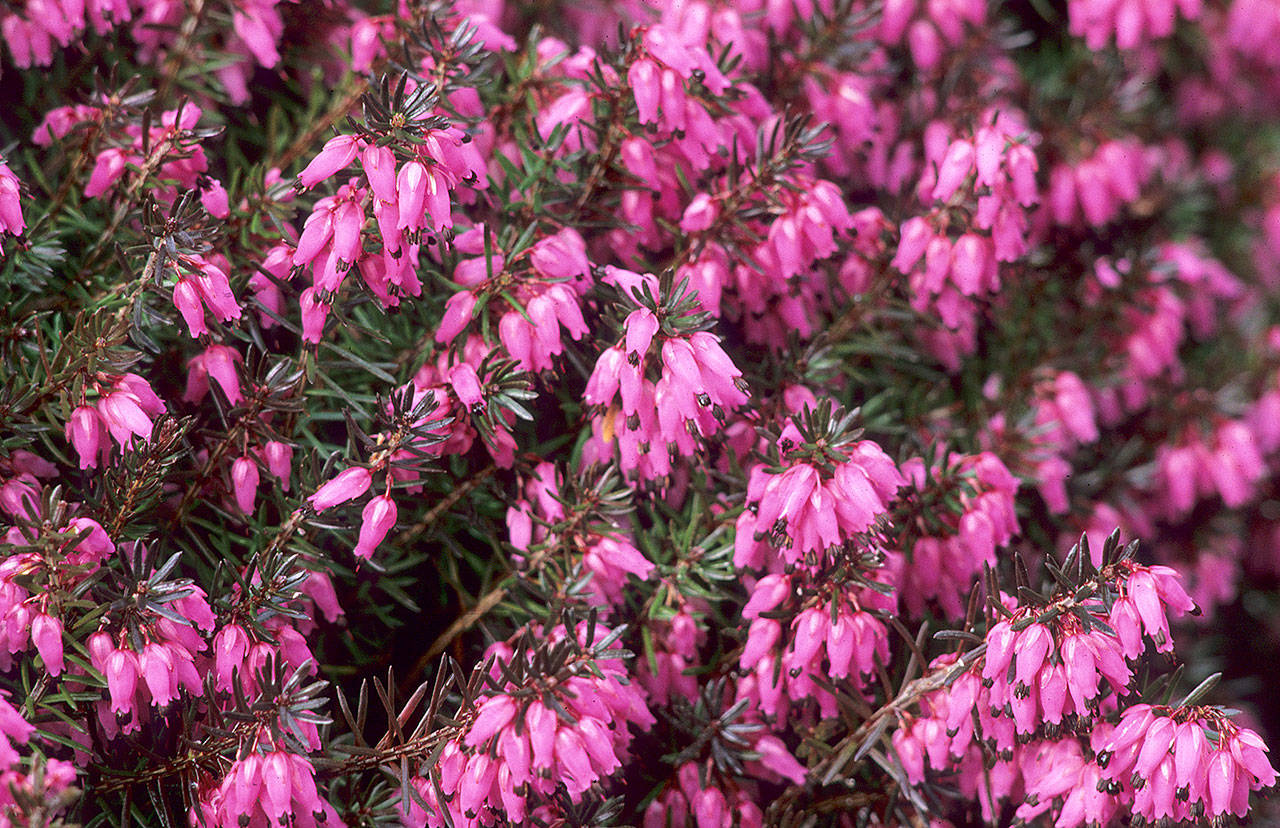What: Winter heaths provide months of color just when we seem to need it most. From January to May, Erica carnea “Vivellii” covers itself with hundreds of small, urn-shaped, purplish-pink flowers that darken to magenta. It is an evergreen shrub with a low, spreading habit, making it an excellent groundcover for sunny locations or for adding interest to winter containers. Its branches are somewhat irregular in spacing, creating textural interest, and its needle-like leaves are medium-green with a bronze cast in winter. This form caught the eye of judges during a Great Plant Pick Erica evaluation held in 2003 at VanDusen Botanical Garden in Vancouver, B.C. Judges commented on the profusion of pink flowers. “Vivellii” was collected in the Engadive Alps, Switzerland, by Paul Theoholdt in 1906 and named after his employer A. Vivell of Olten, Switzerland.
Where: Heath produces the most flowers in full sun. It prefers a location with well-drained or sandy soil.
Size: This spreading shrub will grow to be just 6 inches tall and spread to 1-foot-4-inches wide when mature.
Care: It is best to water “Vivellii” winter heath regularly during dry weather. Newly planted heath can dry out quickly once planted, so it is important to water often and deeply when the plant is young. It can also be helpful to soak the plant in a bucket of water to fully saturate the soil before planting. After the blossoms have faded, a light shearing will remove most of the faded flowers and promote dense growth.
— Richie Steffen, Great Plant Picks
Talk to us
> Give us your news tips.
> Send us a letter to the editor.
> More Herald contact information.

























